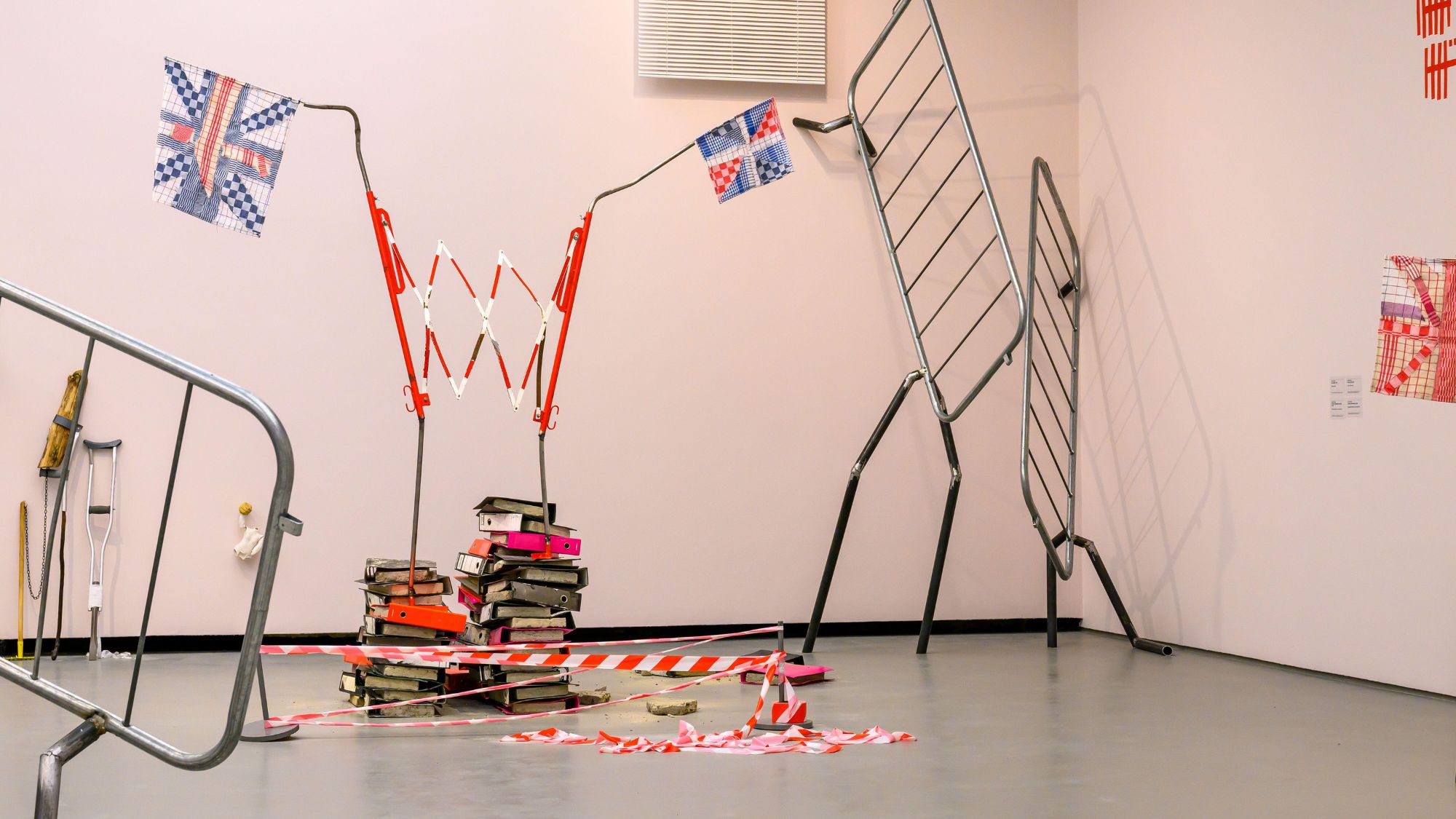Turner Prize 2023 review: 'a big surprise' at Eastbourne's Towner Gallery
The mini-exhibitions by the four shortlisted artists are 'rather effective'

A free daily email with the biggest news stories of the day – and the best features from TheWeek.com
You are now subscribed
Your newsletter sign-up was successful
It's been a while since the Turner Prize "forced Britain to take an interest in contemporary art", said Waldemar Januszczak in The Sunday Times. In recent years, this "once-fierce" art award has generally been a boring event filled with mediocre offerings. Indeed, so routinely has it underwhelmed that I set out to visit this year's version – on show at Eastbourne's Towner Gallery – "untouched by hope or excitement". As usual, the four shortlisted artists who competed for the £25,000 prize have each been accorded their own mini-exhibition. The difference, however – "and this really is a big surprise" – is that the show is "rather effective". The 2023 Turner nominees are installation artists Ghislaine Leung and Jesse Darling; painter, film-maker and musician Rory Pilgrim; and Barbara Walker, who is feted for her portraits of black Britons. They have created a display that is brimful with "that rarest of all Turner qualities – talent".
Walker's contribution is a highlight, said Laura Cumming in The Observer: a series of "cogent and pensive" charcoal portraits of Windrush scandal victims, drawn directly onto the walls. These images of people "denied their lawful immigration status" and subjected to a "vicious chain of policies and deliberate procedures" are "colossal" in scale: "monumentally visible". Some are superimposed onto documents proving their subjects' right to remain. Less successful is Leung, who offers a wall chart attesting to her hours free from childcare, along with some shiny steel ventilation ducts and a collection of toys – tiny washing machines, vacuum cleaners and houses. It is rather obvious as a "critique of the means of art-world production" – and the struggles of working mothers – and not a very interesting one, either.
I wasn't impressed by Pilgrim's entry, said Alastair Sooke in The Daily Telegraph. His deeply worthy show takes in a film of people performing what he describes as a "seven-song oratorio" during the pandemic, as well as some "wishy-washy, faux-naïf paintings and drawings of fantastical landscapes". Frankly, it's "awful". Thank goodness, then, for Darling, who was announced as the winner last week – an artist who makes the rest seem "lukewarm" by comparison. His exhibition is a vision of a dystopian, ruined Britain that is nevertheless suffused with wit. It contains an array of "anarchic yet stylish recent sculptures" made from unlikely materials: metal barricades, pigeon spikes, a maypole wrapped in tape. You see "a rollercoaster's buckled rails bursting through a wall"; and "patchwork versions of the Union flag". He's a worthy winner: his display is "the most exhilarating" thing I've seen at the Turner Prize in years. "Hmmm," said Waldemar Januszczak. I suppose Darling's work represents "a glumly poetic interpretation of Britain today". But it doesn't have much visual impact. How would I describe his installations? "Bitty."
The Week
Escape your echo chamber. Get the facts behind the news, plus analysis from multiple perspectives.

Sign up for The Week's Free Newsletters
From our morning news briefing to a weekly Good News Newsletter, get the best of The Week delivered directly to your inbox.
From our morning news briefing to a weekly Good News Newsletter, get the best of The Week delivered directly to your inbox.
Towner Gallery, Eastbourne, Sussex (01323-434670, townereastbourne.org.uk). Until 14 April 2024.
Sign up to The Week's Arts & Life newsletter for reviews and recommendations.
A free daily email with the biggest news stories of the day – and the best features from TheWeek.com
-
 Why are election experts taking Trump’s midterm threats seriously?
Why are election experts taking Trump’s midterm threats seriously?IN THE SPOTLIGHT As the president muses about polling place deployments and a centralized electoral system aimed at one-party control, lawmakers are taking this administration at its word
-
 ‘Restaurateurs have become millionaires’
‘Restaurateurs have become millionaires’Instant Opinion Opinion, comment and editorials of the day
-
 Earth is rapidly approaching a ‘hothouse’ trajectory of warming
Earth is rapidly approaching a ‘hothouse’ trajectory of warmingThe explainer It may become impossible to fix
-
 Kia EV4: a ‘terrifically comfy’ electric car
Kia EV4: a ‘terrifically comfy’ electric carThe Week Recommends The family-friendly vehicle has ‘plush seats’ and generous space
-
 Bonfire of the Murdochs: an ‘utterly gripping’ book
Bonfire of the Murdochs: an ‘utterly gripping’ bookThe Week Recommends Gabriel Sherman examines Rupert Murdoch’s ‘war of succession’ over his media empire
-
 Gwen John: Strange Beauties – a ‘superb’ retrospective
Gwen John: Strange Beauties – a ‘superb’ retrospectiveThe Week Recommends ‘Daunting’ show at the National Museum Cardiff plunges viewers into the Welsh artist’s ‘spiritual, austere existence’
-
 Bad Bunny’s Super Bowl: A win for unity
Bad Bunny’s Super Bowl: A win for unityFeature The global superstar's halftime show was a celebration for everyone to enjoy
-
 Book reviews: ‘Bonfire of the Murdochs’ and ‘The Typewriter and the Guillotine’
Book reviews: ‘Bonfire of the Murdochs’ and ‘The Typewriter and the Guillotine’Feature New insights into the Murdoch family’s turmoil and a renowned journalist’s time in pre-World War II Paris
-
 6 exquisite homes with vast acreage
6 exquisite homes with vast acreageFeature Featuring an off-the-grid contemporary home in New Mexico and lakefront farmhouse in Massachusetts
-
 Film reviews: ‘Wuthering Heights,’ ‘Good Luck, Have Fun, Don’t Die,’ and ‘Sirat’
Film reviews: ‘Wuthering Heights,’ ‘Good Luck, Have Fun, Don’t Die,’ and ‘Sirat’Feature An inconvenient love torments a would-be couple, a gonzo time traveler seeks to save humanity from AI, and a father’s desperate search goes deeply sideways
-
 A thrilling foodie city in northern Japan
A thrilling foodie city in northern JapanThe Week Recommends The food scene here is ‘unspoilt’ and ‘fun’